DRYNESS IN WINTER
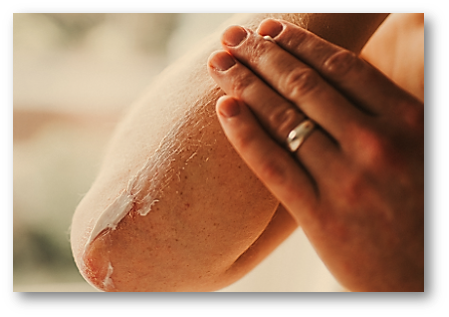
During the winter months, it is common for the air to become dry due to a number of factors. Dry air can lead to a number of problems, including dry skin, chapped lips, and static electricity. It can also make the air feel colder, as the dryness can cause mucous membranes in the nose and throat to become dry and irritated.
There are several reasons why the air becomes dry during the winter. One reason is that cold air holds less moisture than warm air. As the temperature drops, the air becomes drier. Additionally, indoor heating can contribute to dryness by removing moisture from the air.
To cope with the dryness of winter, it is important to take steps to add moisture to the air and to keep your body hydrated. Using a humidifier, drinking plenty of water, and using humidifying lotions or creams can help to alleviate dryness. It is also important to protect your skin from the dry air by wearing gloves, a hat, and a scarf and to use lip balm to prevent chapped lips. Finally, using a saline spray can help to moisturize your nasal passages and make breathing easier.
WINTER AND COPING WITH EXTREME DRYNESS
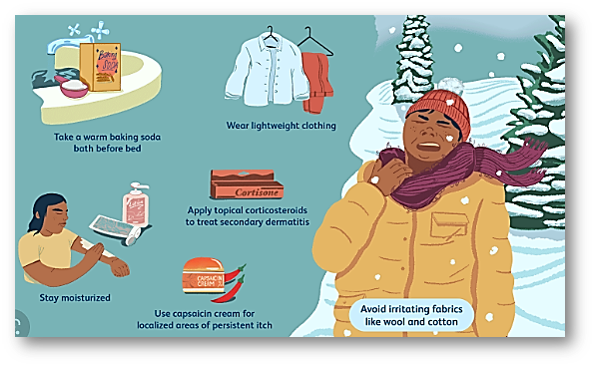
During the winter months, it is common for the air to become dry due to a number of factors. Dry air can lead to a number of problems, including dry skin, chapped lips, and static electricity. It can also make the air feel colder, as the dryness can cause mucous membranes in the nose and throat to become dry and irritated. Here are a few tips for coping with extreme dryness during the winter:
- Use a humidifier
- Use a humidifying lotion or cream
- Use a lip balm
- Use a saline spray
- Hydration
- Avoid hot showers
- Protect your skin
HUMIDIFIER
A humidifier is a device that increases the humidity, or amount of moisture, in the air. There are several types of humidifiers, including cool mist, warm mist, and ultrasonic humidifiers.
Cool mist humidifiers use a fan to blow air over a wet wick, filter, or other absorbent material, which then releases moisture into the air. These types of humidifiers are generally less expensive and easier to clean than warm mist humidifiers, but they can be less effective in very dry climates.
Warm mist humidifiers use a heating element to boil water, creating steam that is released into the air. These humidifiers can be more effective in dry climates, but they may be more expensive to operate and can be a safety hazard if not used properly.
Ultrasonic humidifiers use high-frequency vibrations to create a fine mist of water that is released into the air. These humidifiers are generally quieter and easier to clean than other types, but they can be more expensive to purchase.
Humidifiers can be helpful for relieving dryness and irritation of the skin, eyes, and respiratory system, and they can also help to alleviate certain respiratory problems, such as asthma and allergies. However, it is important to use and maintain them properly to avoid the growth of mold and bacteria, which can be harmful to your health.
HUMIDIFYING LOTION OR CREAM USES TO BEAT DRYNESS
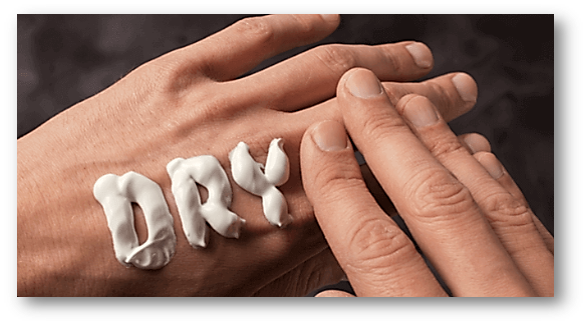
Humidifying lotions and creams are products that are designed to moisturize and hydrate the skin by increasing the skin’s moisture content. These products can be especially useful for people with dry or sensitive skin, as they can help to soothe irritation and improve the overall appearance and feel of the skin.
There are several types of humidifying lotions and creams available, including those that contain natural ingredients such as aloe vera, shea butter, and glycerin, as well as those that contain artificial ingredients such as mineral oil and petrolatum. Some humidifying creams and lotions may also contain fragrances, dyes, and other additives, which can be irritating to some people with sensitive skin.
To use humidifying lotion or cream, apply a small amount to clean, dry skin and massage it in until it is fully absorbed. It is generally best to apply these products after bathing or showering, when the skin is still slightly damp, as this can help to lock in moisture.
It is important to choose a humidifying lotion or cream that is suitable for your skin type and any specific skin concerns you may have. If you have very dry or sensitive skin, it may be helpful to look for products that are formulated with gentle, natural ingredients and are free from potentially irritating additives. It is also a good idea to test any new product on a small patch of skin before applying it to your entire body to ensure that it does not cause irritation.
LIP CARE TO OVERCOME WINTER DRYNESS
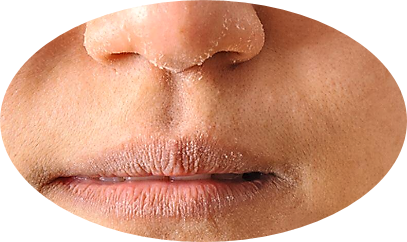
Dry, chapped lips can be a common problem during the winter months when the air is colder and drier. Here are a few tips for taking care of your lips to help prevent and alleviate dryness:
Keep your lips moisturized:
Use a lip balm or lip moisturizer to keep your lips hydrated. Look for products that contain ingredients such as beeswax, shea butter, or cocoa butter, which can help to lock in moisture. You can also try using a humidifier to add moisture to the air, which can help to prevent your lips from drying out.
Avoid licking your lips:
You lick your lips, the saliva on your tongue can actually dry out your lips even more. Instead, use a lip balm or lip moisturizer to keep your lips hydrated.
Protect your lips from the elements:
When you are outside in cold or windy weather, cover your lips with a scarf or use a lip balm with SPF to protect them from the elements.
Drink plenty of water:
Staying hydrated can help to keep your lips and skin moisturized. Make sure to drink plenty of water throughout the day.
Use a lip scrub:
If your lips are already chapped and dry, using a lip scrub can help to remove dead skin cells and improve the overall appearance and feel of your lips. You can make your own lip scrub by mixing together equal parts sugar and honey, or you can purchase a lip scrub from a beauty or skincare store.
By following these tips, you can help to keep your lips moisturized and healthy during the winter months.
MAINTAIN HYDRATION TO PREVENT DRYNESS IN WINTERS
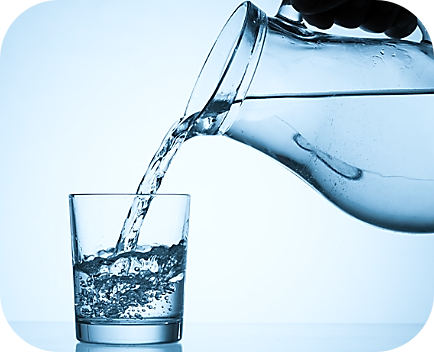
Here are a few tips for maintaining hydration during the winter months to help prevent dryness:
Drink plenty of water:
It is important to drink enough water throughout the day to stay hydrated. Aim for at least eight 8-ounce glasses of water per day.
Eat hydrating foods:
Incorporating foods that are high in water content, such as fruits and vegetables, into your diet can also help to keep you hydrated. Some examples include watermelon, cucumber, and oranges.
Use a humidifier:
Using a humidifier can help to add moisture to the air, which can prevent dryness of the skin and mucous membranes.
Take shorter showers:
Hot water can strip the skin of its natural oils, leading to dryness. Try taking shorter, lukewarm showers to help prevent dryness.
Use a moisturizer:
Applying a moisturizer to your skin after showering or bathing can help to lock in moisture and prevent dryness. Look for products that are formulated for your skin type and any specific skin concerns you may have.
Protect your skin from the elements:
When you are outside in cold or windy weather, cover your skin with layers of clothing to protect it from the elements.
By following these tips, you can help to maintain hydration and prevent dryness during the winter months.
AVOID HOT SHOWERS
It is generally recommended to avoid hot showers, especially during the winter months, as hot water can strip the skin of its natural oils, leading to dryness. Here are a few tips for avoiding hot showers:
Use lukewarm water:
Instead of hot water, try using lukewarm water for your showers. This can help to prevent dryness without being too cold.
Set the temperature:
Consider installing a thermostatic mixing valve, which allows you to set the temperature of your water at a comfortable level.
Take shorter showers:
Hot showers can be drying, so try to keep your showers as short as possible.
Use a moisturizing body wash:
Look for a body wash that contains moisturizing ingredients, such as glycerin or shea butter, to help nourish and hydrate your skin.
Apply moisturizer after showering:
After showering, be sure to apply a moisturizer to your skin to help lock in moisture and prevent dryness.
By following these tips, you can help to avoid hot showers and prevent dryness of the skin during the winter months.
EXCESS USE OF BODY LOTION AND MOISTURIZERS IN WINTER CAN BE HARMFUL TO THE SKIN
It is generally safe to use body lotions and moisturizers to help keep your skin hydrated and prevent dryness during the winter months. However, it is important to use these products as directed and to choose products that are appropriate for your skin type.
Using too much lotion or moisturizer can lead to clogged pores, which can cause breakouts or other skin problems. It is generally best to use a small amount of product and to apply it evenly to your skin, massaging it in until it is fully absorbed.
It is also a good idea to choose products that are formulated for your skin type and any specific skin concerns you may have. For example, if you have oily or acne-prone skin, you may want to choose a lighter, oil-free moisturizer. If you have sensitive skin, look for products that are free from fragrances and other potentially irritating additives.
Overall, it is important to use body lotions and moisturizers in moderation and to follow the instructions on the product packaging to ensure that you are using them properly. If you have any concerns about the use of these products, it is a good idea to consult with a dermatologist or other medical professional.
Keywords: Winter clothing, winter activities, winter travel, winter home care, winter health and wellness, Dry skin and chapped lips, Seasonal affective disorder, Winter allergies, Cold and flu remedies, Influenza prevention, dryness, harsh weather, winter
REFERENCES:

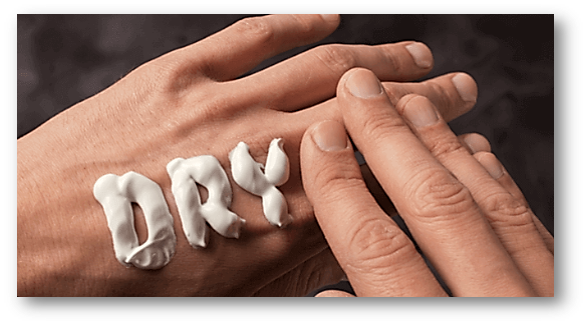
Pingback: SKIN CARE- HEALTHY TIPS!! - Life Biologs
Pingback: DANDRUFF AND ANTI DANDRUFF!! - Life Biologs